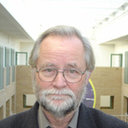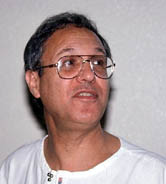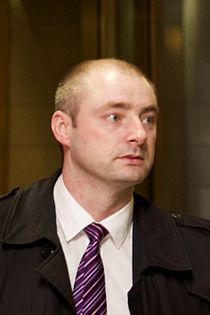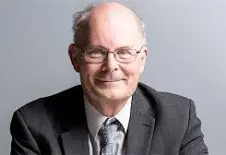Filter By
Individuals
 Data Projects Involved:1
Data Projects Involved:1 Vendors Involved:0
Vendors Involved:0Born in Diessen, Thomassen obtained his MA in Sociology in 1968 at the Tilburg University, where in 1976 he also obtained his PhD in the Social Sciences.[4] In 1968 he started his academic career as assistant professor at the Tilburg University. After his graduation in 1977 he was appointed Professor of Political science at the University of Twente, where he served the rest of academic career. He was Dean of the faculty of Political science in the years 1985–87 and 1993–93. Over the years he has been Visiting Professor at the University of Michigan, Harvard University, Mannheim University, European University Institute and Australian National University.[4] In the years 1986–87 and 2002–03 he was fellow at the Netherlands Institute for Advanced Studies in the Social Sciences (NIAS). Since 1991 he is member of the Royal Netherlands Academy of Arts and Sciences.[4] His research interests include "Democratic theory, political representation, electoral research and legitimacy in the European Union."[5]
 Data Projects Involved:1
Data Projects Involved:1 Vendors Involved:0
Vendors Involved:0After completing his master's degree in social psychology and group development at Columbia University and completing his rabbinical studies, Schwartz received his Ph.D. in social psychology from the University of Michigan, and subsequently taught in the sociology department of the University of Wisconsin–Madison, and in 1973 became a professor. From 1971 to 73, Schwartz was a visiting lecturer in the department of psychology at the Hebrew University. In 1979, Schwartz moved to Israel with his wife and three children. He joined the department of psychology at the Hebrew University, where he holds the post of Leon and Clara Sznajderman Professor Emeritus of Psychology. He is now retired, but continues his research activity, as well as developing and promoting his Basic Human Values Theory. During the 1970s and 1980s, Schwartz was following the studies of Geert Hofstede about human values and built upon them in his research on pro-social and altruistic behavior. His research has since included studies on the development and consequences of a range of behavioral attitudes and orientations, such as religious belief, political orientation and voting, social group relations, consumer behavior, as well as the conceptualization of human values across cultures. Schwartz is a fellow of the American Psychological Foundation and is a member of the American Sociological Foundation, European Association of Experimental Social Psychology, the Israel Psychological Association, the Society for Experimental Social Psychology, and the Society for Personality and Social Psychology. He is president of the International Association for Cross-Cultural Psychology. He coordinates an international project in more than 70 countries that studies the antecedents and consequences of individual differences in value priorities and the relations of cultural dimensions of values to societal characteristics and policies. His value theory and instruments are part of the ongoing, biannual European Social Survey.
 Data Projects Involved:1
Data Projects Involved:1 Vendors Involved:0
Vendors Involved:0My main research area is social stratification - including studies of educational inequality, the class structure, and social mobility. My interest in intergenerational processes also incorporates the study of children's well-being. I am also engaged in studies of ethnic stratification. I am the PI for Sweden in a comparative project on the integration of ethnic minority school children (CILS4EU), led by Frank Kalter, Universität Mannheim. As I am responsible for the Swedish Level-of-Living Survey (LNU) (Level-of-Living (LNU)), I have an interest in research in the level and distribution of welfare.
 Data Projects Involved:1
Data Projects Involved:1 Vendors Involved:0
Vendors Involved:0Eriksson was chairman of the Nord-Trøndelag Progress Party's Youth from 1991 to 1994, a member of the Progress Party's Youth Central Board from 1995 to 1996 and 1998 to 2000, and political deputy chairman of the Progress Party's Youth from 1998 to 2000. He was also chairman of the Verdal Progress Party from 1992 to 1993, a member of the Verdal municipal council from 1992 to 2011, a group leader from 1995 to 2006, a member of the presidency from 1999 to 2005 and member of the Innherred joint municipality board from 2003 to 2005. Eriksson was also a member of Nord-Trøndelag County Council 1995–2005, group leader 1997–2006, a member of the county committee 1999–2003, and chairman of Nord-Trøndelag Progress Party from 2002–2008. Before he was elected to the Storting in 2005, Eriksson served as 1st Deputy Representative from 1997–2005. He ran for re-election in 2013, but the Progress Party did not get enough votes in Nord-Trøndelag to get a representative from there. Minister of Labour and Social Inclusion Following the 2013 election, Eriksson was appointed minister of labour and social inclusion in the Solberg cabinet. In March 2014, Eriksson pointed criticism against the fishing industry for their "cowboy culture" and asked them to get rid of it. His criticism came in the wake of revelations that Romanian workers had been told to hide their real work hours from the Norwegian Labour Inspection Authority. Eriksson told NRK that "I think it is important to get a signal to everyone who works in the fishing industry that they must adhere to the laws and rules that apply in Norwegian working life. Cowboy culture is not desirable in any sector". In April, he expressed that growth and rehabilitation companies should get increased competition after findings that only one out of five people could get an average paying job in a rehabilitation company. He emphasised that more parts should be able to participate and that a larger proportion of the services would be put out to tender so that more people could offer innovative solutions. In June, the leader of Oslo LO, Roy Pedersen, led protests against Eriksson after he had proposed changes in the Working Environment Act. Pedersen stated that "we are not going back to that a Norwegian worker is going to stand with a hat in hand ask for a job". In response, Eriksson stated: "LO leader Gerd Kristiansen said after I took office that they should act constructively. Little has been seen. And what Pedersen says here is neither constructive nor correct", and went on to add: "What I do is I give power back to the nurse and other employees, so that they can to a greater extent choose what kind of framework they want around their job, so that they can agree with their employer what is the best solution for them. Many have separated and have children every other week. Then it is good to be able to have schemes that are flexible and that can be adapted to the individual, but within the safe framework that will still be the basis." In September 2015, he welcomed and presented the new director of the Norwegian Labour and Welfare Administration, Sigrun Vågeng at a press conference. Eriksson expressed that he was "very proud to stand here today and have Sigrun Vågeng by my side. I am extremely thankful to have gotten the director that I asked for". He was forced to step down against his will as minister on 16 December 2015, following a reshuffle. The Progress Party had also decided that Eriksson was going to be replaced. According to election researcher Anders Todal Jenssen, the dismissal was because the "weakest ministers [were] replaced with new strong politicians" ahead of the parliamentary elections in 2017.[6] In a book release, Eriksson, after he had to resign, made strong accusations against both the officials in the Ministry of Labour and Social Affairs, the Prime Minister's Office, the management of the Directorate of Labour and Welfare and the Progress Party management, and claimed that they were "in kahoots" against him, and took a stand against the decision to remove him from the cabinet. Dagsavisen wrote that Eriksson "had an extremely bad tone with his civil service". Post-government After his time as Minister of Labour, he started working on 1 August 2016 as a consultant in the PR agency MSLGROUP and announced that he would not be on the Progress Party's list for the next parliamentary election. On 12 June 2017, he took over as leader of the industry association Norske Sjømatbedrifters Landsforening.
 Data Projects Involved:1
Data Projects Involved:1 Vendors Involved:0
Vendors Involved:0From 1981 to 1983 Curtice was a research fellow at Nuffield College, Oxford.[10][1][11] Curtice was appointed as a lecturer at the University of Liverpool from 1983 to 1988, then a lecturer and senior lecturer at the University of Strathclyde from 1988 to 1997[1] before being promoted to Professor in 1998. Curtice serves as president of the British Polling Council, vice-chair of the Economic and Social Data Service's Advisory Committee and is a member of the editorial board of the Journal of Elections, the Executive Committee of the British Politics Section of the American Political Science Association, and the Policy Advisory Committee of the Institute for Public Policy Research.[3] He was formerly a Fellow at the Netherlands Institute for Advanced Study and a member of the steering committee of the Comparative Study of Electoral Systems project. Curtice has frequently appeared on BBC News during broadcast coverage of general elections in the United Kingdom, giving his predictions of the results in 2005, 2010, 2015 and 2017.[12] With David Firth he developed the methodology used in the exit poll estimation used in the general election coverage.[13] He has picked up a strong following on social media, and was mentioned frequently on Twitter during the 2017 election, though he shuns this attention, adding "I've no wish to become a media celebrity".
 Data Projects Involved:1
Data Projects Involved:1 Vendors Involved:0
Vendors Involved:0I have been a part of Oxford sociology for the last half-century, coming to Oxford in 1970 as a University Lecturer in Sociology. Over the following fifty years my research has ranged widely over many areas, from rational choice theory to electoral behaviour. Most of my research has been based on sample surveys, and I was a very junior member of the team that conducted the landmark 1972 social mobility survey (led by John Goldthorpe and Chelly Halsey at Nuffield College). Subsequently I directed the British Election Surveys of 1983, 1987, 1992 and 1997 (with Roger Jowell and John Curtice) and more recently the 2010 Ethnic Minority British Election Survey (with Steve Fisher, David Sanders, Maria Sobolewska and Gemma Rosenblatt). I have also broadened my range to include field experiments designed to test whether racial discrimination continues to occur in the British labour market. (It does.) I have also worked with various national and international bodies such as UNDP (on social cohesion and trust in Bosnia) and OECD (on the integration of ethnic minorities). Currently I am leading a project for the Social Mobility Commission designing a new measurement framework in order to monitor trends in social mobility and to evaluate the effectiveness of government policy. I am also a member of a task force (for the Office For National Statistics) aimed to improve the collection of equalities data across government and to ensure that ‘everyone counts, and is counted, and no one is forgotten’.








